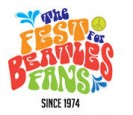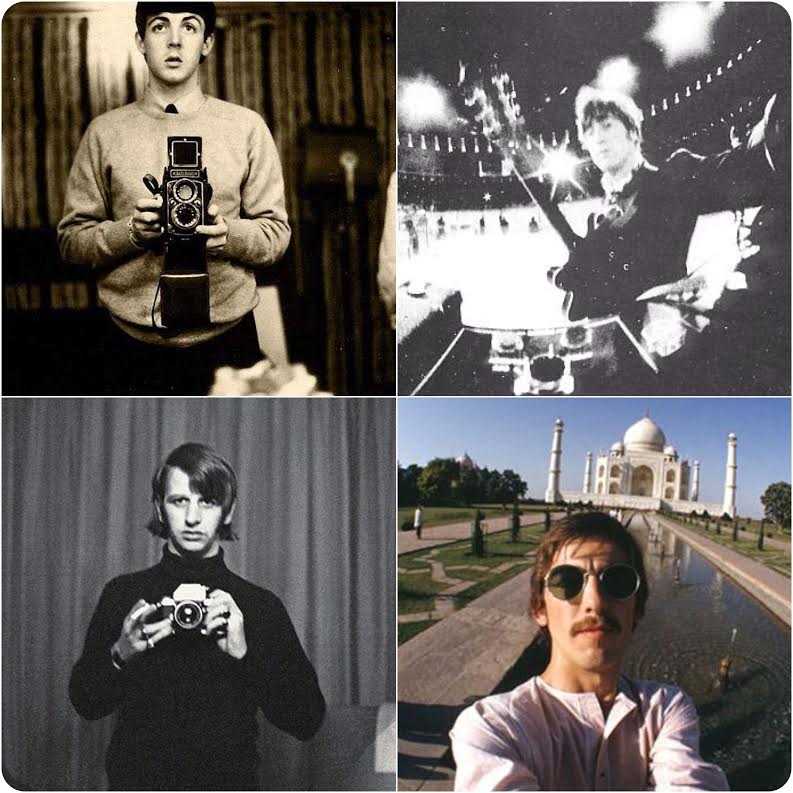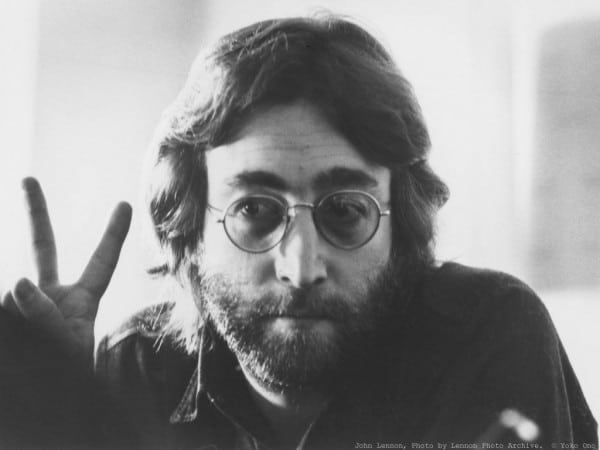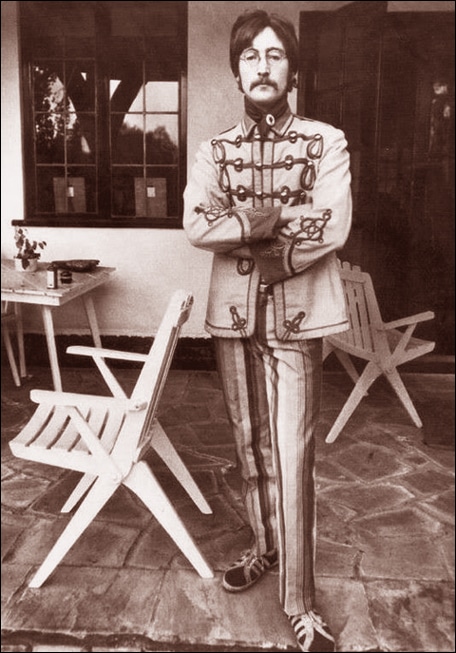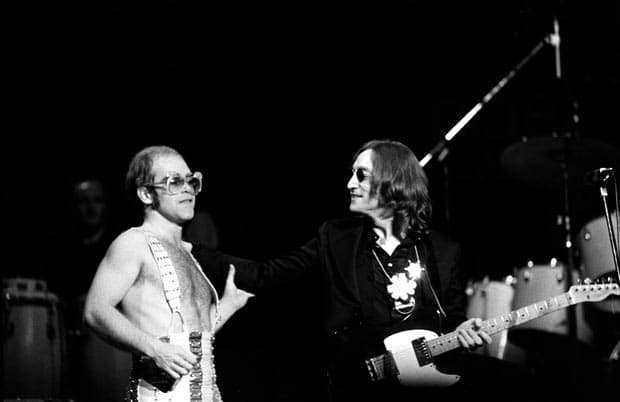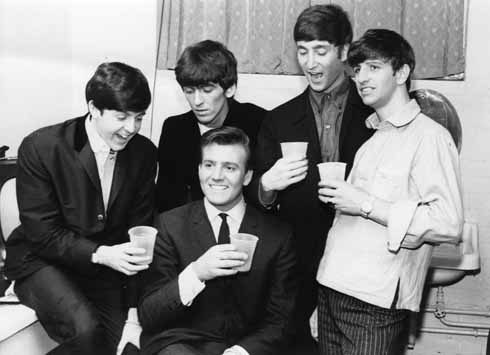It’s infectious, The Chainsmoker’s narcissistic, beat-jammed song. As I run, I listen to the lyrics and giggle at the girl who’s forlorn over getting only 10 likes for her selfie in the last five minutes, the girl who whiningly wonders, “should I take it down?”
My I-pod is eclectic, and up next are The Beatles, harmonizing in my ears. “She Loves You” is quickly followed by “Hey Jude” and suddenly, I see it! What made The Beatles incredibly timeless was not their selfie-ness, but their selflessness. Instead of focusing on themselves, The Beatles focused on us.
Sure, the boys started out at Square One with songs that asked the girl to “Please Please Me” and to “Love Me Do.” But with a tiny bit of confidence and experience under their belts, John, Paul, George, and Ringo relinquished self-adoration for something bigger.
They began to focus out, not in.
In the years to come, The Fab Four would give us Lovely Rita, Dear Prudence, Mr. Kite (and company), Sgt. Pepper’s Lonely Hearts Club Band, Mean Mr. Mustard, Rocky Raccoon, Maxwell (avec his silver hammer), Bungalow Bill, Julia (a very real girl), Girl (deep breath now!), that nameless lass who was finally, finally leaving home, Michelle, the girl who graciously permits Paul to drive her car, Desmond and Molly, JoJo, Sweet Loretta Martin, Eleanor Rigby and Father McKenzie, the man who blew his mind out in a car, Nowhere Man (closely resembling John Lennon, but not a clear-cut selfie), the girl who doesn’t miss much, athletic Mother Superior, Darling (of Oh!), You Who Never Giveth Me Your Money, Little Girl (who’d better run for her life…if she can), and oh so many more. “The Lads” populated our world with people like us and unlike us. They created a cast of characters with whom we identified, related, or rejected. They spun stories that drew us into other magical worlds.
Through the eyes of these four Liverpool boys, we plunged under the sea to live in a submarine. We tended an octopus’s garden. We rolled up for the Mystery Tour. We were happy just to dance with them. We reluctantly hung our red dress back up in the closet. We discovered what it was like to be dead. We let them take us down to Strawberry Fields. We anguished over lost friends in an eerie L.A. fog, and we raged on the brink of Revolution! We lived lives beyond our tiny rural, suburban, or even urban worlds. We reached out.
John was the only one who really wrote “selfies,” and we were so unaccustomed to hearing these boys speak of themselves that we completely overlooked what John was saying. When he penned, “I’m a loser, and I’m not what I appear to be,” we assumed he was talking about someone else…another “character,” as it were. When he cried for “Help!” we thought it was just a heady theme song. When he said, “I’ve got every reason on earth to be mad, ‘Cause I just lost the only girl I had,” we thought it was a fictional scenario. That’s how infrequently these boys focused on themselves!
The delight of The Beatles lay (and still lies) in their ability to get us to see others, to hear the stories of others, and to care about someone beyond ourselves. Even in his Christmas carol, John is admonishing our selfishness and urging us to see and care for the poor and hungry. Time and again, The Beatles urge us to look beyond the “ME” to the “WE.”
Look, there’s absolutely nothing wrong with a little selfie now and then. It’s a good place to start. After all, you’re asked to love others as you love yourself.
But once “selfied”…move on. Because in the end, (after all) the love you take is equal to the love you make.
Jude Southerland Kessler
http://www.johnlennonseries.com
Baby Boomer Beatles Blog
Give Peace a Chance
Have you ever really thought about what that means? Ever let it sink it? Why did John Lennon think he needed to urge us to give peace a try, a sample, a chance? Could it be that he was convincing us to consider peace because he knew that we are non-peaceful at heart?
During the Age of Enlightenment (the 18th Century), great thinkers called philosophes spent a great deal of serious time and thought trying to determine whether man was inherently evil or inherently good. In France, René Rousseau wrote an essay asserting that man is born good, but is almost immediately corrupted by the world around him. In England, John Locke wrote an opposing essay asserting that man is born evil (the church calls it “original sin”) but is rescued by laws and by society’s uplifting ethics.
There was no “winner” in this contest of ideas. Some people favored Rousseau. Some favored Locke.
I hold with Locke. I believe that a young child will lie, if given the chance…that he will say cruel things to another child…that he will put himself or herself before anyone else. I think that only parents, teachers, mentors, and extended family can teach that child to be selfless… can convince that child to be kind, tactful, giving, and loving. Many of you will disagree with me. That’s to be expected. People have been arguing this point since the 1700’s without resolution.
Like John Lennon, I believe that we have to learn to give peace a chance.
This past week, the world has revolved in utter chaos. Twelve people were murdered in a Parisian newspaper office for speaking their minds. Hostages were taken by the assailants and murdered. Terror was on our lips. Violence, hatred, and suspicion reigned supreme.
In his famous chants about the divisiveness of “isms” in his song, “Give Peace A Chance,” John seemed to know that peace has little hope in our society. Early on, we take sides. But like that radical young man, Jesus of Nazareth, John urged us to turn the other cheek and to be a neighbor to people unlike ourselves. He reminded us (in “Instant Karma”) that if we fail to do this, “Instant karma is going to get you…gonna knock you right in the head!” Okay, John, we hear you.
But giving peace a chance!? Can that ever really happen? I’m very, very, very skeptical. However, despite all the evidence of its impracticality, I still believe that seeking peace is our ultimate goal.
However, giving peace a chance doesn’t mean blindly trusting everyone. Some people are untrustworthy, and we’d be stupid to toss our pearls before them. Giving peace a chance doesn’t mean being naïve or foolish. Giving peace a chance doesn’t mean forgetting the wisdom learned from the past. And certainly, giving peace a chance doesn’t mean buckling under to bullies. What it does mean is that we should act daily as if “We Are Unafraid” to bring good into the world, no matter what.
In so many of his songs (even “Happy Christmas, War is Over”), John reminded us that we are all called to do good things, great things. And if we are called, we must try.
I’m willing to give peace a chance. How about you?
Jude Southerland Kessler
http://www.johnlennonseries.com
To hear the songs in this blog:
Give Peace a Chance https://www.youtube.com/watch?v=RkZC7sqImaM
Instant Karma https://www.youtube.com/watch?v=vEjUQ15lyzk&feature=youtu.be
Happy Christmas, War is Over https://www.youtube.com/watch?v=z8Vfp48laS8
“Living with Eyes Closed?”
“Living with Eyes Closed?”
“Living is easy with eyes closed
Misunderstanding all you see,
It’s getting hard to be someone
But it all works out.
It doesn’t matter much to me…”
John Winston Lennon
“Strawberry Fields”
My sister refuses to watch the news. “I just don’t want to know about it,” she tells me. And on one level, she’s SO right: Life is to be enjoyed! (And yeah, I know… the news is never good.)
Our own John Lennon voiced a similar opinion. “Living is easy with eyes closed,” he sang. And he was right. Life’s so much smoother if you don’t know the details.
But wait!! Was John advocating living that way, or was he pointing out (in typical Lennon satire) how very wrong that kind of attitude is? Wasn’t John asking us to examine our actions just the way he always did in “Instant Karma” or “Happy Christmas (War is Over)” or even in “Revolution”?
I think what John was pointing out is that “living with eyes closed” is NOT what we’re called to do. It’s not how we’re called to live.
The answer to, “Am I my brother’s keeper?” is still a resounding “Yes!”? And especially in this season, we’re reminded that we’re inexorably linked to the poor, the war-torn, the abused and neglected, and the lonely. (“Ah, look at all the lonely people!” Paul penned.)
Watching hours and hours of current events and televised news may not be the happiest habit. And certainly watching it without putting any lifestyle changes into action is fruitless and empty.
But maybe this year, we can OPEN our eyes, take a good look at the world around us, and then do something.
Maybe right now, at this moment, we can decide to make 2015 the year in which we:
Volunteer at a shelter
Write a letter to a congressman
Give (a little or a lot) to a good cause
Contribute a song or quote or photo to the Fest Facebook page or the Moments group to lift someone’s spirits
Tweet something important
Champion a cause
Plant a neighborhood garden
Tutor a child
Drive someone to work or to the grocery store
Clean up the neighborhood
Forgive an old wound
Cook for a neighbor who works long hours or who is elderly
Rake someone’s leaves
Call someone who is lonely and chat
Buy a ticket to The Fest for someone and give it to them anonymously! (It’ll be the best time they’ve ever had!)
Knit a scarf for someone who works in the cold
Take in a rescue dog or cat
Encourage someone to make his or her dream come true
Stand up for what you believe in
Give sincere compliments…(you know, the things you think but never have the courage to say)
Withhold judgments
Build faith
Try to smile more and gripe less
It’s 2015, people! This year, let’s take a peek. Let’s open our eyes. Let’s understand what we see, and then do something about it! Let’s make the world less “a lonely branch” and more a “Strawberry Field.”
What say you?
Jude Southerland Kessler
http: //johnlennonseries.com
Get You to the Light
How can both overhead lights in my kitchen burn out at the same time? Las Vegas odds, and yet this morning, my workspace (the place where I wrap and box up my John Lennon Series books for mailing) was completely dark.
At first, I was aggravated. And yeah, a little depressed.
You see, I have SAD syndrome (Sensory Affective Disorder) and so the first thing I do each morning is turn on every single light in the rooms where I’m gonna be hanging out. It’s so illuminated around here that my sister once acridly observed, “Oh I get it. You want your house to look just like the lobby of Homewood Suites.”
Yep, that’s about right.
But this morning, as I stood in the dim haze of my inconveniently dull workspace, it hit me. I was being given a gift…my blog theme for The Fest for Beatles Fans! I stood there quietly, and I mulled.
This is what I heard:
December is all about The Light. Hanukkah is The Miracle of the Lights…the inexplicable phenomenon of light continuing to pierce the darkness when every scientific fact dictated that the darkness should’ve prevailed. Hanukkah is the triumph of the Unknown over Known. Hanukkah is the victory of Light over darkness.
And Christmas is the birth of that Light. As the writer John phrased it so long ago: “That Light shines in the darkness, and the darkness has not overcome it.”
Another writer named John – a handsome, young man from Liverpool, England – wrote about the Light as well. He said, “Whatever gets you to the Light, is all right, all right!” And hey guys…he wasn’t talking about G. E. replacement bulbs, and we all know it.
He was addressing the miracle of that which pushes away the murky existence that lingers where all hope is lost.
December houses the shortest day of the year – the 21st of December – the day of least light shed on humans in all 365. At this time of year, many, many people struggle with depression as they try to ward off the scientific effects of a shadowy world.
But John Lennon, cavortin’ on stage with Elton John (another John!) in a concert that ultimately changed his fate forever, shouted in his rocker’s voice for us to seek the light, to “make it through the night,” to keep looking for ways to overcome the darkness.
Any other pursuit, he told us, was a waste of time. (“Don’t need a watch to waste your time,” he belted out, tongue in cheek. And John Lennon meant it. He knew about limited mortality (see his song, “Borrowed Time”). He knew about years well spent. John urged us to spend each day wisely.
Look…you can attach many meanings to this month…you can make it all about baking or shopping or creating décor or partying or traveling or inviting friends into your home. You can make it about clothes or trees or garlands or Frosty the Snowman. But the essence of the holidays is The Light.
The Maccabees on that gloomy hilltop knew it. John, that long-ago writer of the Book of John, knew it. And John the latter – our very own John Lennon – knew it. His final days were spent purchasing scores of books about spirituality, seeking out sages and religious leaders to ask questions, and spending hours of serious contemplation about life’s meaning.
He was seeking the Light. And it was, in fact, “all right, all right.”
With that in mind, I’m off to find replacement bulbs. All other tasks this morning can wait. “Bet my money and my life”…I can do this. December, the Maccabees, and John have set me on a mission. I’m off to seek the Light.
Click here to listen to John’s song…
Jude Southerland Kessler is the Author of The John Lennon Series
http://www.johnlennonseries.com
Follow Jude on Twitter @JudeKessler
Follow Jude on Facebook here
Moments: With A Little Help From Our Friends
“Why in the world are we here?
Surely not to live in pain and fear…”
-John Lennon
But sometimes, it feels that way, doesn’t it?
Sometimes you have a horrid day…
followed by a worse one…
and then, an even darker one than that.
Sometimes, your cup runneth over, but not with joy – with sorrow.
John Lennon felt that loneliness and isolation, too. In fact, in Strawberry Fields Forever, he cried out, “NO ONE, I think, is in my tree. I mean, it must be high or low.” Many times, he felt alone…out on a limb, cut off from human understanding. We all do.
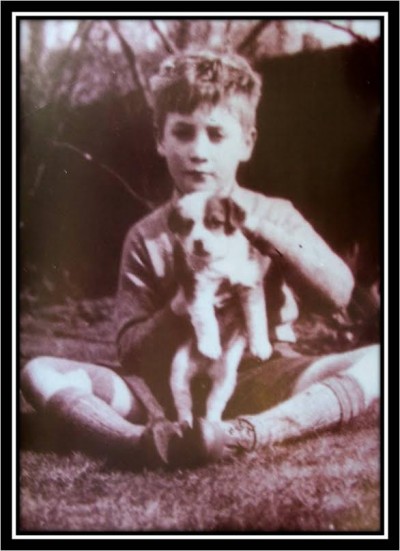
That is when we reach for a MOMENT.
Moments come in myriad sizes. They can be as small as a freshly-brewed cup of coffee, a hot shower, a single crimson leaf tumbling along the sidewalk, or a quick smile from someone at work. Or a moment can stand tall and significant: an afternoon shared with your child or a kind email or precious card from someone who has taken the time to think of you and let you know.
The best moments are unanticipated…hearing a favorite Beatles song on the radio. Or finding a crumpled $10 bill in your jeans pocket. Having a stranger randomly treat you to Starbucks.
But hey, there is nothing wrong with moments that are planned! You can, in fact, begin to inject moments purposely into your day. Plan to get a pedicure or listen to Rubber Soul or Live at the BBC. Plan to curl up with a good book (Shoulda Been There might be nice!). Plan to cut fresh evergreens or pansies to place on your bedside table. Plan to eat a STRAWBERRY or a tangerine. Plan to do something that makes you happy.
Planning one special moment for yourself in the day ahead gives you a chance to anticipate “the happy.” If you know that at 3 p.m. you’re going to take a 10-minute break to walk outside or to sip a cup of cocoa or read a few pages in Mark Lewisohn’s Tune In, then all day long, you can look forward to that moment with hope. No matter what else happens, you can move toward that bit of joy with the assurance that at least one good thing is going to occur.
I’m a runner, and sometimes, when the run is particularly difficult, I push myself from focal point to focal point, not trying to mentally accomplish the “whole run,” but refusing to quit by saying, “I’ll make it as far as the next mailbox” and then, “Okay, now I’ll make it as far as the next street sign.” Using that technique, I trick myself into enduring the whole four miles; I complete the run bit by bit, moment by moment.
THAT is the thought process behind a new Facebook page called “MOMENTS.”
It is a page filled with inspiring quotes, lovely photos, good videos, a couple of jokes, some uplifting songs, and an entire potpourri of thoughts to help us endure the race. It’s a collection of thoughts that keep us running, even when we feel like giving up. 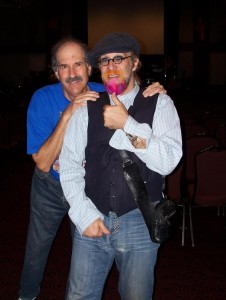
I invite you to join the Moments page on Facebook and enjoy it. It’s a page for Beatles fans…although we want anyone to enjoy it. It’s a place where those of us who have connected via John, Paul, George, and Ringo can contribute a thought or two. We can post happy songs or inspiring songs like Across the Universe. We can post quotes or videos.
Go to the page when you need a smile. Go to the Moments page when you want to give one away.
I’ll be there, offering you a moment or two when you need one. And when I need a moment, I’ll run there as well, hoping you’ve left one there for me.
Moment by moment, we’ll get by. It happens, of course, with a little help from our friends.
Jude Southerland Kessler is the Author of The John Lennon Series
http://www.johnlennonseries.com
Follow Jude on Twitter @JudeKessler
Follow Jude on Facebook here
Billy J. Kramer will always sound like summer
To me, Billy J. Kramer will always sound like summer.
I first heard “Bad to Me” as we trekked back from City Pool to Bringhurst Park where Camp Denim Deb for Preteens was in full swing. It was deep summer in Alexandria, Louisiana – June bug and Popsicle days. And I was almost 11, or “one teen,” as I insisted on calling it. And it was in that “almost-one-teen summer” that I began noticing boys and dreaming of falling in love.
“The birds in the sky would be sad and lonely
If they knew that I’d lost my one and only…
They’d be sad! Don’t be bad to me!”
The words poured from our camp counselor, Joanne Wooten’s, transistor radio. Walking single file through sun and shadow – our flip flops wet-smacking the sidewalk – my friends and I sang along…allowing ourselves to fall for the tune and the words and the way they made us feel, even though the hit wasn’t (or so we thought) by The Beatles.
The Beatles! They were my world. Well, John Lennon was my world. And had I known that he’d composed “Bad to Me” during his May 1963 trip with Brian Epstein to the Costa Brava and the Costa Del Sol, I would have flipped over it. Head over heels! But instead, I fell for the song gradually, mesmerized by the image of “softly sighing” leaves and the gentle sound of Billy J. Kramer’s voice.
Slender, brunette Joanne Wooton wore aqua contact lenses and tailored Capri pants. And as a teenager (almost an adult!), she was beyond cool. So when she informed us all that Billy J. Kramer was from Liverpool, too, and that he was blond, broad-shouldered, and handsome, we swooned. The Denim Debs had never seen Billy’s face, but listening to him plead, “Don’t be bad to me,” we were hooked.
It wasn’t until forty years later that I actually met Billy, face-to-face, at the Las Vegas Fest for Beatles Fans. Gathering all of my courage, I strolled over to him and said, “Billy, I want you to know that ‘I Go To Pieces’ meant the world to me growing up. In fact, I loved it so much that I sang it as a lullabye to my son each evening when he was a baby.”
Billy, who could have easily retorted, “Uhhhh, that’s not my song, you twit!” smiled a kind smile and tenderly replied, “Ah, that’s so nice. I’ll be sure to tell Peter Asher next time I see him.”
It took me ten minutes to figure out that I had named the wrong song. And ten months to get up the courage to speak to Billy again!
But since then, we’ve become good friends – me and this tall, sandy-blond NEMS star who wooed me away from John, if only for one small segment of summer. He and his wife have become one of the couples I most look forward to seeing each time we Fest for Beatles Fans-ers convene in New York or Chicago.
But this past Fest, as I sat in the Saturday night concert audience with my grown son, Cliff, and heard Billy J. sing the song I had REALLY crooned to my baby as a lullabye, “Bad To Me,” I was overcome with emotion.
Suddenly, it wasn’t 2014. It was 1964. And I was flip-flopping back to Bringhurst Park to braid a keychain made from rubber strands of brightly-coloured, waxy ribbon. I was singing along with the other Denim Debs and talking about the futility of attempting a cartwheel on the thick, grey tumbling mat that always smelled of feet.
It wasn’t October in Los Angeles as Billy sang. It was long ago…June bug hot and Popsicle cold. When Billy J. offered up “Bad to Me,” it was blue skies and birds on the wing.
For me, Billy J. Kramer will always sound like summer. His is the sound of days free from care. A lost innocence.
Jude Southerland Kessler is the Author of The John Lennon Series
http://www.johnlennonseries.com
Follow Jude on Twitter @JudeKessler
Follow Jude on Facebook here
50 Years Ago Today: Tales of Triumph and Tragedy – The Beatles Kennedy Connection
By Bruce Spizer:
November 22, 1963, was a triumphant day for the Beatles. In their homeland, the group had dominated the record charts for most of the year. Their last three singles, Please Please Me, From Me To You and She Loves You, had all topped the U.K. charts. Earlier in the week, the band was presented with silver disc awards (indicating sales of over 250,000 units) for their Twist And Shout EP (which by then had sold an incredible 650,000 copies, making it the largest selling EP in British history), She Loves You (which by then had nearly sold a million) and their first two albums, Please Please Me and With The Beatles, even though the latter LP had yet to be released.
Although the Beatles had been creeping into the national consciousness for months, it was the group’s October 13, 1963 appearance on the television show Val Parnell’s Sunday Night At The London Palladium that elevated group had grown from a successful entertainment act to a national news phenomenon. The popular variety show was the British equivalent of The Ed Sullivan Show. That evening, over 15 million people tuned in to see the group perform From Me To You, I’ll Get You, She Loves You and Twist And Shout. The bedlam caused by the Beatles both inside and outside the theater caught the attention of British news editors. The Daily Herald heralded the coming of “Beatle-Fever!” The Daily Mirror mirrored these sentiments describing the mass hysteria as “Beatlemania!” The latter term became part of the British vocabulary and would soon be heard throughout the world. 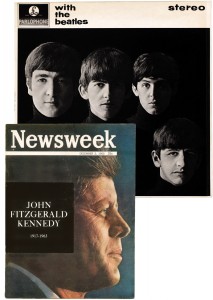
Three weeks later on November 4, 1963, the group played before British royalty at the Prince of Wales Theatre in London as part of the Royal Command Performance. The group entertained the elite crowd with From Me To You, She Loves You, Till There Was You and Twist And Shout. Prior to the star of their last number, John quipped, “For our last number I’d like to ask you help. Would the people in the cheaper seats clap your hands? And the rest of you, if you’ll just rattle your jewelry.” Click here to see their performance.
The next morning, manager Brian Epstein departed London Airport for a visit to New York City. One week after the group performed before the Queen Mother and Princess Margaret, Brian met with Ed Sullivan in hopes of arranging appearances for the Beatles on Sullivan’s popular variety show, which aired on Sunday nights on the CBS television network. The two reached an agreement that the Beatles would appear on The Ed Sullivan Show twice, first on February 9, 1964, broadcast live from New York, and then on February 16 live from the Deauville Hotel in Miami Beach. In addition, the Beatles would tape an additional performance, which could be shown later in the season. Although the group was virtually unknown in America at the time the deal was made, Sullivan thought it was worth the investment, believing that the mass hysteria caused by the group in their homeland could be duplicated in America.
Sullivan’s faith in the Beatles would soon be justified when the London bureaus of American magazines and television networks began reporting back to the States of strange happenings across the Pond. But to fully understand why it would take a few more months for Beatlemania to explode in American, one has to be aware of how different people communicated in the sixties compared to today.
In the sixties, there were no home computers. The internet had not even been dreamed of. The first communications satellite, Telstar 1, was launched on July 10, 1962, a little more than a month after the Beatles first recording session at Abbey Road. Not only were there no smart phones, but telephones were tethered to the wall. Long distance calls were considered an extravagant luxury due to their high costs. Tweeting was something that birds did. Put simply, we were not living in a global community.
The media was also drastically different. There were only three major television networks, CBS, NBC and ABC. There were no networks devoted to news or entertainment. There were only a handful of news magazines. Rolling Stone would not begin publishing until four years later. People magazine was over a decade away.
But in mid-November, 1963, two of the nation’s leading news magazines, Time and Newsweek, ran stories on the Beatles in their music sections. On November 18, NBC’s Huntley-Brinkley Report aired a four-minute story on the Beatles at 6:53 p.m. The segment, which utilized film of the Beatles and the crowd at the group’s November 16 concert at the Winter Gardens Theatre in Bournemouth, was filed by Edwin Newman, a correspondent based in New York who had previously headed the network’s London bureau. Although the broadcast was not recorded, the audio of the story was recently discovered. This can be found on the NBC Nightly News website.
The Beatles were about to get even more exposure on November 22. CBS’s London bureau had prepared a five-minute story on the Beatles that was set to air that day on both the CBS Morning News with Mike Wallace and the prestigious CBS Evening News with Walter Cronkite. Early in the day, the CBS Morning News covered President Kennedy’s re-election campaign tour through Texas. The President had given speeches the day before in San Antonio and Houston before heading to Fort Worth to spend the night in the Texas Hotel. On the morning of November 22, he gave two speeches in Fort Worth and then head by plane to Dallas. The Beatles story was broadcast that morning, although no one remembers at what time it was featured. Click here to see the video.
Meanwhile, back in the U.K., the Beatles new album finally went on sale. As President Kennedy and his wife were being warmly greeted by an enthusiastic crowd at Love Field in Dallas, British fans were buying copies of With The Beatles so that they could spend their evening with the Beatles. As the President’s motorcade was heading through the streets of Dallas, the Beatles were gearing up for their concert at the Globe Cinema in Stockton-on-Tees, Durham. Back in Dallas, three shots were fired at the President’s motorcade at approximately 12:30 p.m. Central Standard Time. Two of the shots struck the President, with the third and final shot entering his head. Kennedy was taken directly to Parkland Hospital, where he was officially pronounced dead at 1:00 p.m. Thirty-eight minutes later Walter Cronkite broke the news to the nation (click to see the video). By mid-afternoon, all three television networks were on the air non-stop broadcasting news surrounding the day’s tragic events. Because there was no regular evening news show that night, the CBS Beatles story was not shown again until December 10, 1963, at which time it helped jump-start Beatlemania in America. But that is a story for another day.
There has been much written over what effect the Kennedy assassination had on the Beatles success in America. Some have gone as far to say that the tragic event played a key role, arguing that the youth of America, despondent over the death of President Kennedy, were looking for something to lift them out of their doldrums and that the Beatles provided the needed tonic. I believe that the connection between the assassination and the explosion of Beatlemania in America has been blown out of proportion by those looking for an explanation as to why America’s youngsters embraced the group. In my book, The Beatles Are Coming! The Birth of Beatlemania in America, I explain it as follows:
I was part of the youth of America in the sixties and can speak firsthand on this matter. Although I was only eight and a half years old in November, 1963, I will never forget where I was and how I learned about the assassination. On that Friday afternoon, my third grade teacher was called out of the classroom by an assistant to the principal. About ten or fifteen minutes later she returned to the room looking shook up. Without saying a word, she went to the blackboard and wrote, “The President is dead. Class dismissed.” She then sat down at her desk, lowered her head and cried. I remember going to my cousin’s house and watching television coverage of the assassination that afternoon and evening. I remember hearing about Oswald’s death at Sunday School. I remember seeing highlights of the funeral procession on television. I remember the President’s son saluting the horse-drawn casket. I was shocked and saddened by President Kennedy’s tragi c death, but by the holiday season of 1963, I was over it.
In early January, 1964, I heard I Want To Hold Your Hand on the school bus radio. The excitement of the music and quality of the singing immediately grabbed me. I was hooked. She Loves You, Please Please Me, I Saw Her Standing There, All My Loving and others had the same effect. The fact that they were British, had long hair and were cool was certainly part of it, but the main reason I embraced the Beatles is the same reason people do 40 years later–the quality of the music. In all due respect to President Kennedy, his death did not cause me to become a Beatles fan.
I have discussed the alleged connection between the Kennedy assassination and the popularity of the Beatles with many first generation American Beatles fans. None of these individuals believes that President Kennedy’s death played any part in his or her attraction to the group. Admittedly, this is by no means a scientific survey, but I have yet to find any evidence to support the connection, which has been written as gospel in countless books, magazines and newspapers.
When one looks beyond the United States, the connection becomes even more tenuous. The Beatles were extremely popular in England, Japan, Germany, France, Italy, Australia, Denmark, Sweden, the Netherlands, Canada and several other countries. None of these nations was suffering the trauma of having its head of state assassinated, yet the youth of these countries embraced the Beatles.
Although the death of President Kennedy did not cause Americans to fall for the Beatles, it may have indirectly contributed to the group’s success in the United States. The saturation coverage of the Beatles by the American press in early 1964 closely parallels the conduct of the British press a few months earlier.
Philip Norman, in his Beatles biography Shout!, theorizes that the massive coverage of the Beatles by the British press was in response to months of reporting somber events. “By the end of September, every editor on Fleet Street was looking for a diversion from this incessant heavy news – something light; something unconnected with the aristocratic classes; something harmless, blameless and, above all, cheerful.” Beatlemania proved to be the perfect escape.
Similarly, the American press had grown weary of reporting on the assassination and other depressing events. The Beatles provided a break from over two months of somber news. In the February 11, 1964, New York Daily News, Anthony Burton observed, “It’s a relief from Cyprus and Malaysia and Vietnam and racial demonstrations and Khrushchev. Beset by troubles all around the globe, America has turned to the four young men with the ridiculous haircuts for a bit of light entertainment.”
Beatlemania was fun to cover regardless of how one felt about the four young lads from Liverpool. Members of the press who found the group charming enjoyed reporting on the mass hysteria created by the band. Those who hated the Beatles or failed to understand their popularity took great pleasure in mocking the group and its fans. Their negative and condescending comments served only to strengthen the resolve of the group’s devoted followers. By keeping the Beatles in the news, the press helped fuel Beatlemania in America.
Thus, while President Kennedy’s assassination did not cause the youth of America to embrace the Beatles, it may have led the press to give more coverage to the Beatles, which in turn helped spread Beatlemania throughout the United States.
Copyright 2013 and 2003 by Bruce Spizer.
Click here to sign up for Bruce’s email series on what was happening with the Beatles 50 years ago.
“Out of College, Money Spent….” 10/1/1969
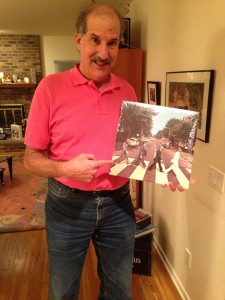 My Summer of ’69: Graduated college, went to Europe with my friend Bob, met John Lennon on 6/13/69 in front of the Apple offices. Walked around London all evening saying I want to work for The Beatles. Wandered for almost two months with a guitar and a wheel of Edam cheese, came back, went to my brother’s wedding, went to Woodstock, decided I had to be in the music business. October 1, 1969, I was out of college, my money was spent, I couldn’t find a job, and I lived at home (pay no rent). I decided to go to Sam Goody (large East Coast Record Chain) to try to get a job selling (Beatles) records. I walked into the store, and there it was, THAT cover, no writing, just an image of the four most recognized people on the planet walking across a street. Of course, I forgot all about asking about a job, bought the record (the actual one I am holding here – still in its original wrapping, just sliced open on the side) and went home to listen to it all night. “Out of college, money spent, see no future, pay no rent…” How did these four guys from Liverpool know EXACTLY where I was in my life on the exact day of its release?! I went back for an interview the next day, got the job, and was on my way to a wonderful 5 year career.
My Summer of ’69: Graduated college, went to Europe with my friend Bob, met John Lennon on 6/13/69 in front of the Apple offices. Walked around London all evening saying I want to work for The Beatles. Wandered for almost two months with a guitar and a wheel of Edam cheese, came back, went to my brother’s wedding, went to Woodstock, decided I had to be in the music business. October 1, 1969, I was out of college, my money was spent, I couldn’t find a job, and I lived at home (pay no rent). I decided to go to Sam Goody (large East Coast Record Chain) to try to get a job selling (Beatles) records. I walked into the store, and there it was, THAT cover, no writing, just an image of the four most recognized people on the planet walking across a street. Of course, I forgot all about asking about a job, bought the record (the actual one I am holding here – still in its original wrapping, just sliced open on the side) and went home to listen to it all night. “Out of college, money spent, see no future, pay no rent…” How did these four guys from Liverpool know EXACTLY where I was in my life on the exact day of its release?! I went back for an interview the next day, got the job, and was on my way to a wonderful 5 year career.
I may have “seen no future” then, but it was this job that led me to my idea of a 10th Anniversary Celebration of The Beatles Arrival in America.
“One sweet dream came true today! “




